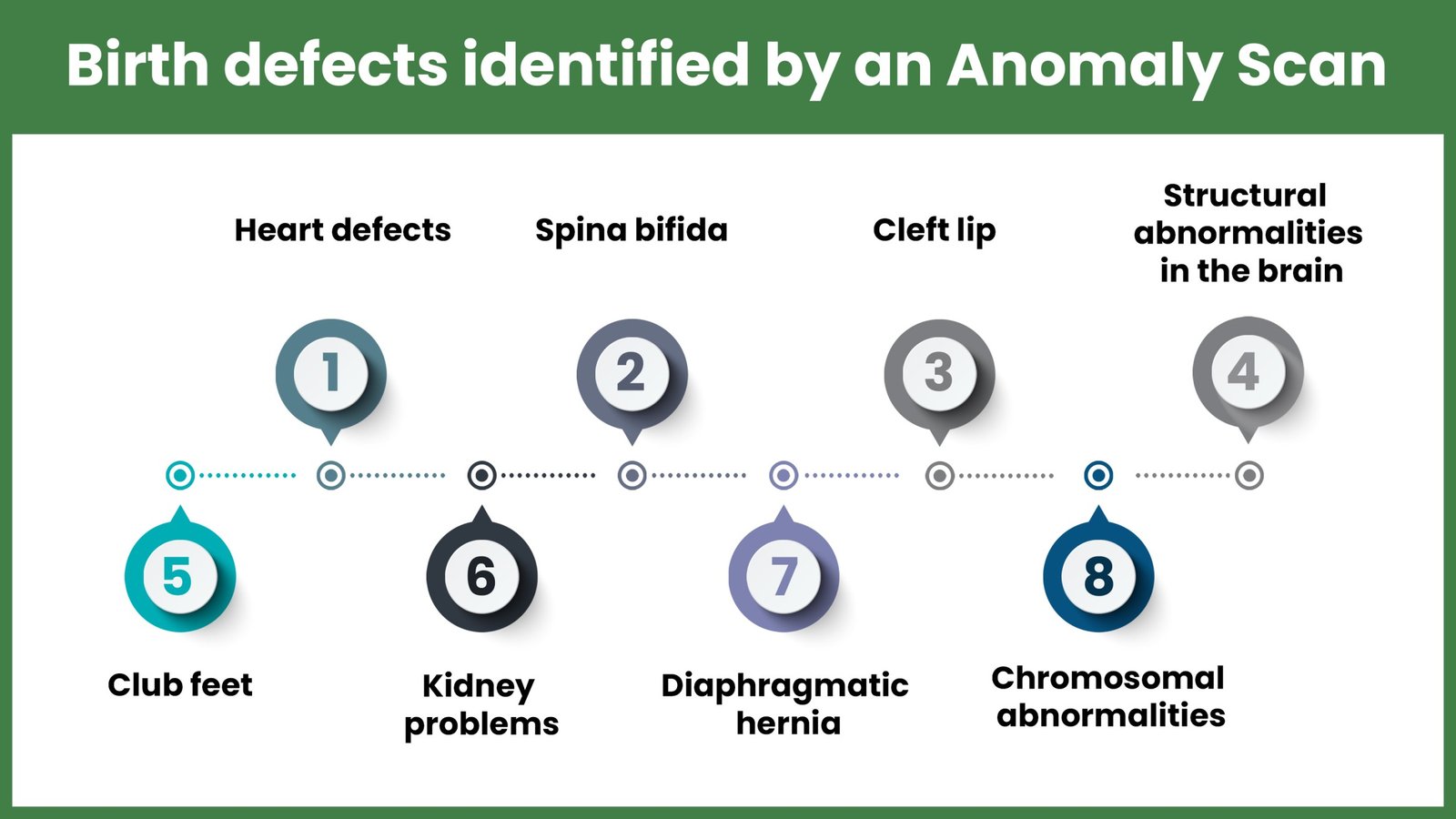Table of Contents
ToggleAn introduction to the Anamoly Scan
The reality that you are going to be a mother fully sets in by the 20th week of pregnancy! You are now due for the anomaly scan. If “how is an anomaly scan done”, is your next question, this post is for you. We have more information related to how it is done, the time taken for it, and its importance.
The crucial time – 20th week
Warm congratulations on safely carrying your child for such a long time. However, your obligation doesn’t end here. In reality, it has only recently begun. Your little bump is undoubtedly the center of attention, hence here is a word of wisdom from us – Never skip the anomaly scan because the 20th week is crucial for both the mother and the unborn child. There is no alternative for it.
Why is an anomaly scan is important?
One of the most important pregnancy ultrasound scans is the anomaly scan, also known as the TIFFA scan. This scan is carried out to examine the fetus’s development and location as well as to look for any disabilities. This scan aids in the detection of anomalies and, in some rare circumstances, gives you the option of deciding whether to carry the pregnancy forward.
The main goals of the anomaly scan are to thoroughly evaluate the pregnancy and identify any uncommon conditions, such as those of the brain, spine, and heart. At this scan, you can ask to learn the baby’s gender as well.
The placenta’s location, the amount of amniotic fluid present, the size of the fetus, and each part of its body are all assessed during the scan.
The brain, face, spine, heart, stomach, bowel, kidneys, and limbs receive particular attention.
The following birth defects can be identified using this scan:
- Heart defects
- Spina bifida
- Cleft lip
- Structural abnormalities in the brain
- Club feet
- Kidney problems
- Diaphragmatic hernia
- Chromosomal abnormalities
The significance of the findings will be discussed if any abnormalities are found, and the patients will have the chance to receive additional counseling from a consultant.
How is an anomaly scan done? What is the procedure for performing an anomaly scan?
The anomaly scan is done trans-abdominally, or over the tummy.
Sonographers or fetal medicine specialist with expertise and training performs the majority of scans. In order for the sonographer to get clear images of the baby, the scan is performed in a room with low lighting.
You will be instructed to lie down on a couch while lifting your top to your chest and lowering your skirt or pants to expose your abdomen.
To shield your clothing from the gel that will be applied to your stomach, the sonographer or their assistant will tuck tissue paper around it.
To examine the baby’s body, the sonographer then runs a handheld probe over your skin. The gel ensures that the probe and your skin make good contact. The ultrasound will show a picture of the baby in black and white.
The scan itself is painless, but in order to get the clearest images of the baby, the sonographer might need to lightly press. This could be unpleasant.
The sonographer must maintain the screen in a position that allows them to see the infant clearly. They might have the screen directly in front of them or at an angle.
The sonographer performing the scan may occasionally need to be quiet so they can focus on inspecting your baby. But after they’ve finished the check, they’ll be able to talk to you about the pictures.
How much time does an anomaly scan take?
The 20-week screening scan appointment typically lasts for 30 minutes.
When the baby is moving around a lot or lying in an awkward position, or if you are overweight or have dense body tissue, it can be challenging to get a good photo. This does not imply that there is cause for concern.
You might need to arrive for the appointment with a full bladder. Before you arrive, the doctor or midwife who is attending to you will let you know. You can get in touch with them and ask if you’re unsure.
Why Jammi Scans?
You can trust Jammi Scans for your beautiful journey. Our Obstetric services include Antenatal care (before birth), Intrapartum care (during labor and delivery), and Postnatal care (after birth) which gives you and your little one womb-like care.
All of our efforts are focused on providing comprehensive care and access to cutting-edge technology for mothers and infants. Along with you, our whole team will be elated when there are no anomalies in the report. In any case, our expert fetal medicine expert – gynecologist-obstetrician is experienced to recognize any complications in the womb and fetus and guide you with the next steps. Book your appointment today with our experts or send us an inquiry.
Chennai Women’s Clinic is now Jammi Scans






